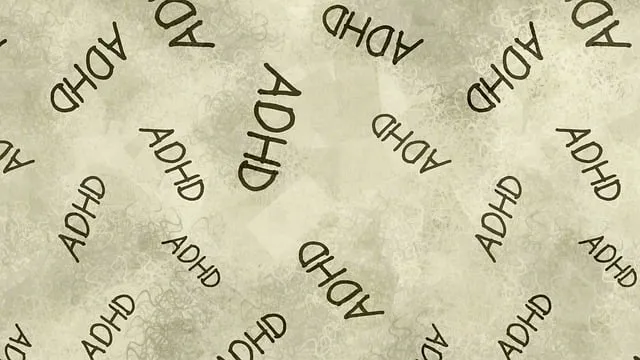Longmont Kaiser's successful mental health programs stem from understanding community needs, tailoring services for specific demographics like youth and older adults. They address local challenges through culturally sensitive education, self-care promotion, and stigma reduction. Partnerships with organizations and leaders enhance reach and credibility. Outreach strategies target at-risk populations, utilizing diverse communication methods to build trust. Evaluating success involves community feedback and data analysis, ensuring tailored services and continuous improvement based on KPI tracking and demographic insights.
Longmont Kaiser’s community outreach programs play a vital role in addressing local mental health challenges. This comprehensive guide explores strategies for successful implementation, from understanding diverse community needs and identifying target demographics to designing tailored curricula and fostering partnerships with key stakeholders. By employing effective outreach methods, these programs aim to engage at-risk populations, ensuring accessibility and impact. Through rigorous evaluation using community feedback and data analysis, Longmont Kaiser measures the success of its initiatives, continuously improving mental health support in the region.
- Understanding Community Needs: Identifying Target Demographics for Longmont Kaiser Mental Health Programs
- Designing Comprehensive Program Curricula Aligned with Local Mental Health Challenges
- Building Partnerships: Collaborating with Local Organizations and Community Leaders
- Implementing Effective Outreach Strategies to Engage at-Risk Populations in Longmont
- Measuring Impact: Evaluating the Success of Longmont Kaiser Mental Health Programs through Community Feedback and Data Analysis
Understanding Community Needs: Identifying Target Demographics for Longmont Kaiser Mental Health Programs

Understanding Community Needs is a vital step in implementing effective Longmont Kaiser mental health programs. By identifying target demographics, healthcare professionals can tailor services to address specific mental health challenges faced by diverse populations within the community. This involves assessing local cultural, socio-economic, and environmental factors that influence mental well-being. For instance, younger generations might require programs focused on digital wellness and stress management, while older adults may benefit from intergenerational therapy sessions.
Longmont Kaiser’s outreach initiatives should consider the unique needs of marginalized groups, such as those facing economic disparities or experiencing homelessness. Encouraging self-care practices and providing education on mental illness stigma reduction efforts can empower individuals to seek support. Additionally, risk assessment for mental health professionals is crucial to ensure they are equipped to handle complex cases and provide culturally sensitive care within these diverse demographics.
Designing Comprehensive Program Curricula Aligned with Local Mental Health Challenges

When designing mental health programs, aligning the curriculum with the specific challenges faced by the local community is paramount. Longmont Kaiser’s mental health programs, for instance, have successfully addressed issues prevalent in their region through tailored Education Programs Design. By focusing on areas such as mood management and confidence boosting, these initiatives cater to the unique needs of the population they serve.
Community outreach goes beyond simply providing information; it involves empowering individuals with coping strategies and fostering a sense of belonging. The curriculum should be interactive, engaging, and culturally sensitive, encouraging open discussions about mental health. Incorporating evidence-based practices and leveraging local resources ensures that participants gain valuable skills and knowledge, ultimately enhancing their overall well-being.
Building Partnerships: Collaborating with Local Organizations and Community Leaders

Building strong partnerships with local organizations and community leaders is a cornerstone of successful mental health programs like those offered by Longmont Kaiser. By collaborating with established entities, the initiatives gain credibility and reach a wider audience. Local organizations bring existing networks, knowledge of the community’s unique needs, and often have trusted relationships with residents. This partnership approach enables the mental health programs to offer tailored support that resonates with the diverse population.
Community leaders can play a pivotal role in amplifying the impact of these initiatives. They can help in designing culturally sensitive programs, ensuring they align with local values and norms. Through their influence, leaders can encourage open conversations about mental health, fostering an environment where individuals feel comfortable seeking support. This collaboration is instrumental in developing effective strategies that promote Inner Strength Development and drive impactful Mental Health Awareness through well-structured Public Awareness Campaigns Development.
Implementing Effective Outreach Strategies to Engage at-Risk Populations in Longmont

In Longmont, engaging at-risk populations requires tailored outreach strategies that connect with individuals where they are, both literally and metaphorically. The Longmont Kaiser mental health programs have successfully targeted underserved communities by employing diverse communication methods, from community events to peer support networks. By utilizing Conflict Resolution Techniques, these programs foster trust and create safe spaces for vulnerable individuals to seek Mental Health Awareness and support without stigma or judgment.
Effective outreach goes beyond simply disseminating information; it involves building relationships and understanding the unique cultural, social, and economic factors influencing each community’s needs. This empathetic approach ensures that interventions are relevant, accessible, and ultimately more successful in reaching those who need them most in Longmont.
Measuring Impact: Evaluating the Success of Longmont Kaiser Mental Health Programs through Community Feedback and Data Analysis

Evaluating the success of Longmont Kaiser mental health programs is a multifaceted process that goes beyond mere service delivery. Community feedback plays a crucial role in understanding the impact and effectiveness of these initiatives. By gathering insights from participants, families, and local organizations, we gain valuable perspectives on how the programs resonate within the community. This qualitative data provides a holistic view, highlighting areas of strength and identifying potential gaps in our services.
Complementing this approach is a robust data analysis framework that scrutinizes key performance indicators (KPIs) related to mental health outcomes. Tracking metrics such as client satisfaction, engagement rates, and improvements in symptoms can quantify the programs’ success. For instance, measuring increases in Inner Strength Development or adoption of Self-Care Practices among participants demonstrates tangible progress. Furthermore, analyzing patient demographics and the diversity of needs met helps healthcare providers tailor services, ensuring Cultural Competency Training is effectively implemented and positively influences program outcomes.
The successful implementation of community outreach programs, as demonstrated by the Longmont Kaiser mental health initiatives, hinges on a collaborative approach. By understanding local needs, designing tailored curricula, building strong partnerships, and employing effective outreach strategies, these programs have significantly addressed mental health challenges in the Longmont community. Continuous evaluation through feedback and data analysis ensures that the Longmont Kaiser mental health programs remain responsive to evolving demographics and local challenges, fostering a healthier and more resilient community.






